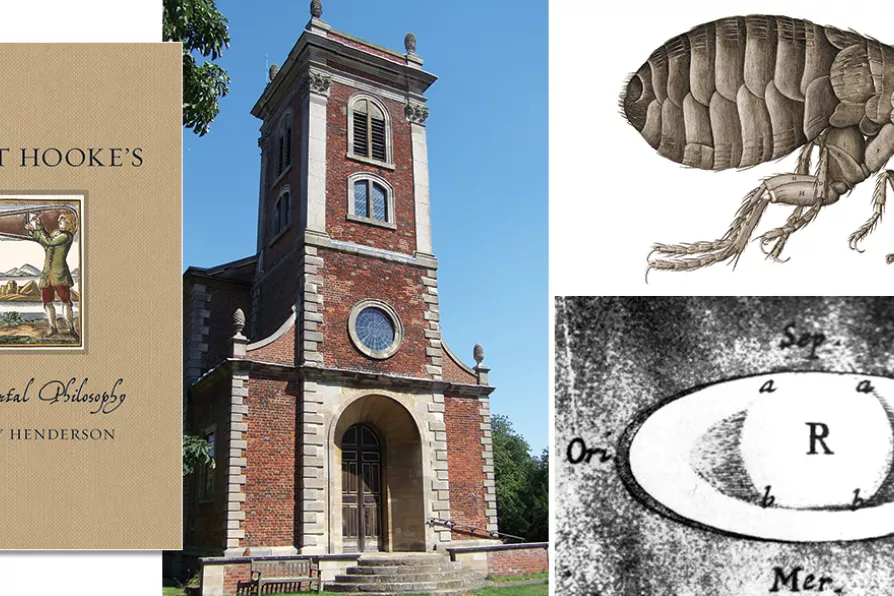MARIA DUARTE and ANGUS REID review "Wuthering Heights", Little Amelie or the Character of Rain, Crime 101, and Stitch Head

 A MAN FOR ALL SEASONS: (L to R) Church of St Mary Magdalene at Willen, Milton Keynes, designed by Hooke; An illustration of a flea “made by magnifying glasses with observations and inquiries thereupon, 1665”; a drawing of Saturn by Robert Hooke, 1666
[Chris Nyborg/CC; Public Domain]
A MAN FOR ALL SEASONS: (L to R) Church of St Mary Magdalene at Willen, Milton Keynes, designed by Hooke; An illustration of a flea “made by magnifying glasses with observations and inquiries thereupon, 1665”; a drawing of Saturn by Robert Hooke, 1666
[Chris Nyborg/CC; Public Domain]
Robert Hooke’s experimental philosophy
Felicity Henderson, Reaktion Books, £17.95
ROBERT HOOKE (1635-1703) was one of the key figures in the development of science in Britain. This excellent study, illustrated with Hooke’s own drawings and diagrams, and with pictures of instruments he designed, expounds Hooke’s approach to science.
He was one of the first to see that the new experimental philosophy – what we today call science – had the potential to improve human life beyond recognition.

JOHN GREEN’s palate is tickled by useful information leavened by amusing and unusual anecdotes, incidental gossip and scare stories

The creative imagination is a weapon against barbarism, writes KENNY COYLE, who is a keynote speaker at the Manifesto Press conference, Art in the Age of Degenerative Capitalism, tomorrow at the Marx Memorial Library & Workers School in London

SALEEM BADAT and VASU REDDY introduce a new book about an outstanding interpreter of the world, and an activist scholar committed to changing society

JOHN GREEN wades through a pessimistic prophesy that does not consider the need for radical change in political and social structures










